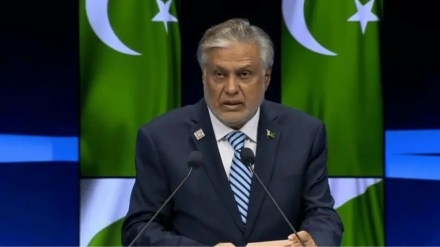Amid rising geopolitical tensions and worsening Indo-Pak ties, Pakistan‘s Deputy Prime Minister Ishaq Dar departed for China on Monday. Upon invitation, Chinese Foreign Minister Wang Yi is set to hold talks with Pakistan as per ARY reports. For the three-day visit, Dar is accompanied by Pakistan’s Special Representative for Afghanistan, Mohammad Sadiq. This marks his first visit to China since India’s Operation Sindoor as a response to the Pahalgam terror attack.
From May 19 to 21, Dar and Yi will deliberate on the evolving regional situation in South Asia and its implications for peace and stability, his office announced in a statement. Among other talking points, the two leaders will review bilateral ties and exchange views on global developments of mutual interest. Taliban-appointed Foreign Minister Ameer Khan Muttaqi will arrive in China on May 20.
This comes days after a ceasefire agreement between India and Pakistan. Dar’s visit forms part of the ongoing high-level exchanges between Pakistan and China. It also underscores the shared commitment of the two nations to strengthen the ‘All-Weather Strategic Cooperative Partnership’ in place. With a meeting scheduled with the Chinese Prime Minister as well, sources from ARY revealed, Foreign Ministers of China, Afghanistan and Pakistan will hold a trilateral meeting in Beijing.
Discussions about the ongoing regional clashed between India and Pakistan will be a common point between the nations. As per reports, the leaders will also discuss the promotion of mutual trade and security cooperation considering sensitive regions on alert such as PoK and Kashmir.
Tensions between India and Pakistan rose following the terrorist attack in Jammu and Kashmir’s Pahalgam, which claimed the lives of 26 people and injured several others. In response to the Pahalgam terrorist attack, Indian Armed Forces launched Operation Sindoor in the early hours of May 7, targeting nine terror sites in Pakistan and Pakistan-occupied Jammu and Kashmir (PoJK), leading to the death of over 100 terrorists affiliated with terror outfits like the Jaish-e-Mohammed (JeM), Lashkar-e-Taiba (LeT) and Hizbul Mujahideen (HM).
Following the attack, Pakistan retaliated with cross-border shelling across the Line of Control and Jammu and Kashmir as well as attempted drone attacks along the border regions, following which India launched a coordinated attack and damaged radar infrastructure, communication centres and airfields across airbases in Pakistan. On May 10, India and Pakistan reached an understanding on the cessation of hostilities.
(with ANI inputs)
